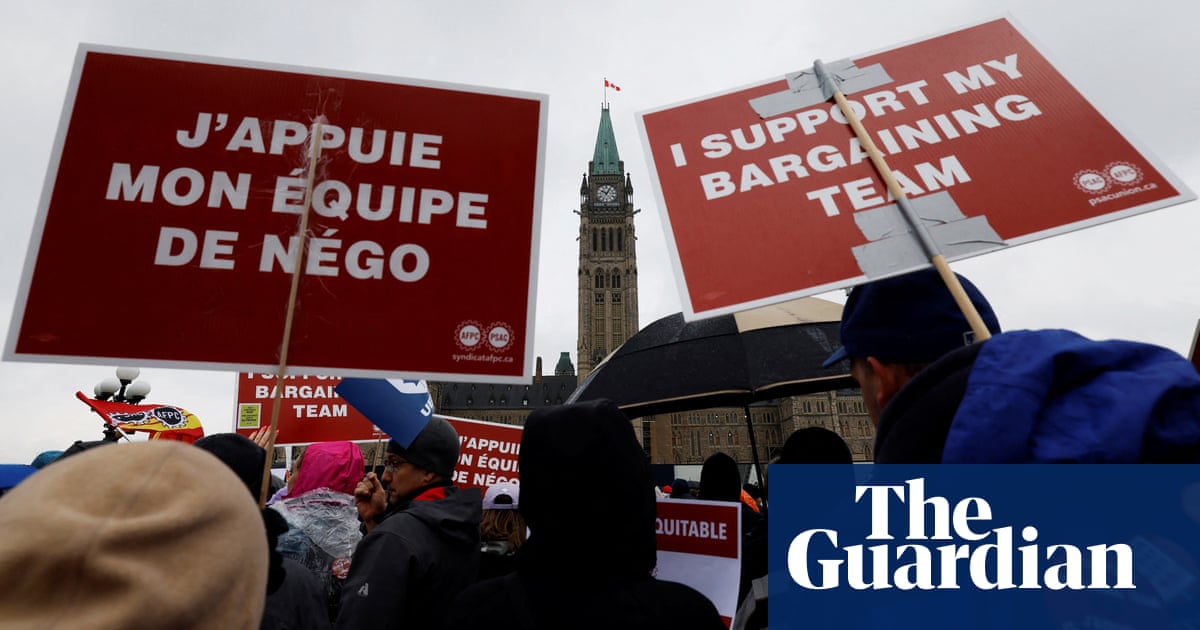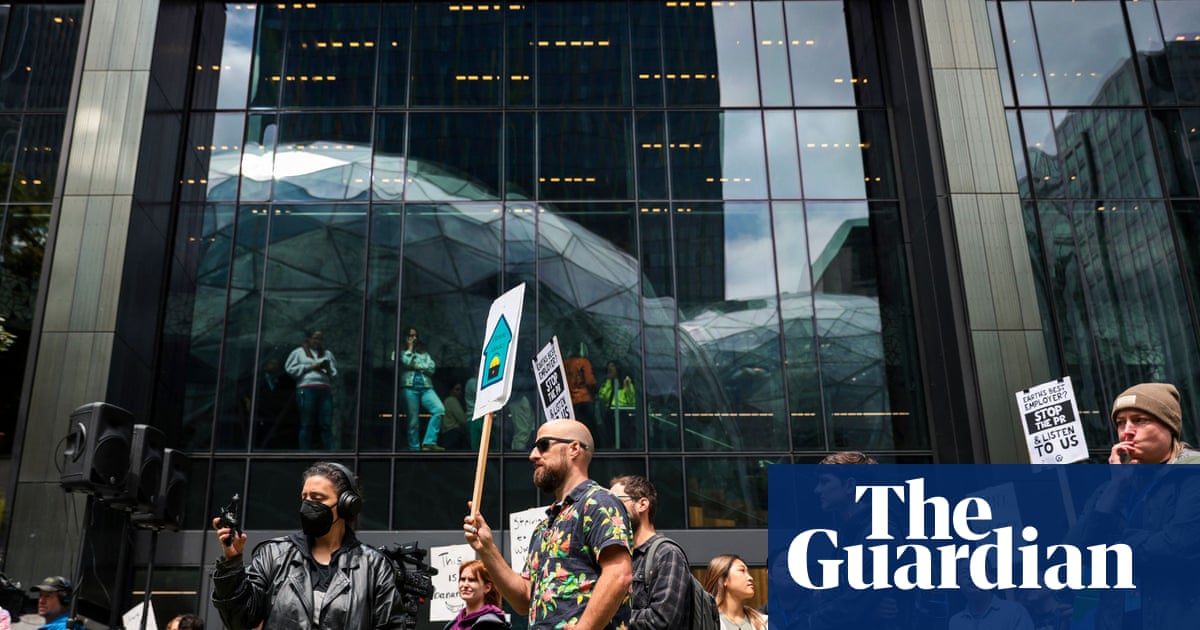
Striking federal workers in Canada are calling for the prime minister, Justin Trudeau, to get involved in stalled negotiations, as the largest job action in decades enters its 10th day and key government services grind to a halt.
More than 100,000 employees with Canada’s largest public sector union have been on strike since last week in a battle over wages and the ability to work remotely.
The strike has disrupted the federal government’s ability to process income tax returns and to issue quarterly payments to low-income Canadians. With taxes due in the coming days, the country’s revenue agency has said it will not delay filing deadlines. Passport and visa processing have also slowed significantly.
The union and the federal government agree workers should get a raise – but the two sides are divided over how much is fair. The union initially called for 13.5% over three years, as well as contract language that formalizes a universal work-from-home policy. The treasury board has offered a 9% raise over a similar time period, which they say equates to an additional C$6,500 (US$4,800) annually for workers.
“This government says it cares about restoring services for Canadians, but they seem content to shrug it off and prolong this strike and its impact on Canadians everywhere,” the Public Service Alliance of Canada, the union, said in a recent internal email sent to workers.
Despite the protracted nature of the strike, 55% of Canadians support federal employees’ right to work from home, according to polling from the Angus Reid Institute, a non-profit public opinion firm.
In recent days, the union escalated its picket lines by targeting Toronto’s Pearson airport, the country’s busiest travel hub, as well as attempting to block shipping ports in Vancouver, Montreal and St John’s. Thousands of workers have also picketed on Parliament Hill.
Despite mounting pressure to end the strike, the treasury board, which oversees public administration, said in a statement it would “not sign agreements that the country cannot afford, nor ones that severely impact our ability to deliver services to Canadians”.
With talks stalled, union leaders say they have lost confidence in the treasury secretary, Mona Fortier, to break the impasse. Instead, they want Trudeau to take a more hands-on approach.
“He can either get involved personally and help settle this dispute or he can turn his back on the workers who are striking,” the union president, Chris Aylward, said while visiting striking workers on Parliament Hill. “We’ll be out here for as long as it takes.”
Trudeau has said he supports the right to collective bargaining.
“Yes, it’s frustrating to know that Canadians may, as the days come, have more difficulty accessing services, but that’s a motivator for everyone to try and resolve this,” said Trudeau.
As the strike drags on, the standoff has become increasingly used as prop, with leaders looking to score political points.
Earlier in the week, the Conservative leader, Pierre Poilievre, sang Frank Sinatra’s New York, New York, criticizing Trudeau’s trip to New York city for meetings. Poilievre was reminded by parliament’s speaker that singing is not permitted in the House of Commons.
The New Democratic party leader, Jagmeet Singh, who has a deal to support the governing Liberals until 2025, warned his party would not support any legislation that forced workers to abandon their strike.












